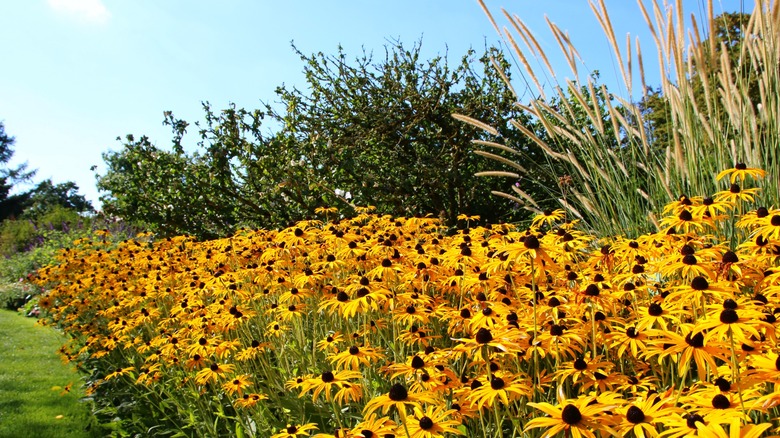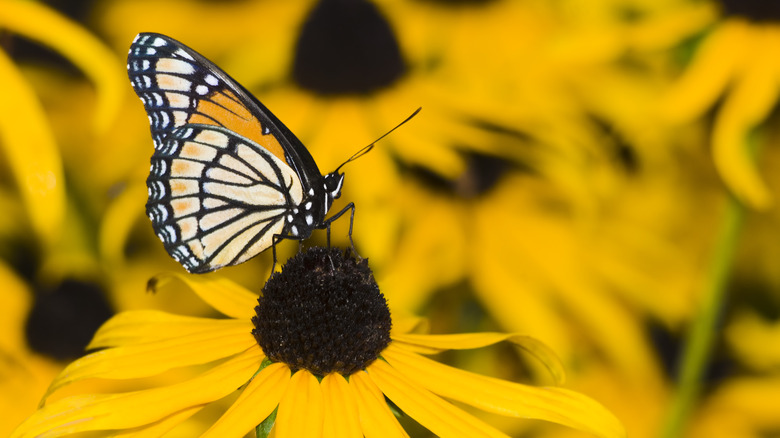The Perfect Fall Flower Exists & It's Even Deer-Resistant
When fall is in the air, the foliage slowly changes to golden-crimson shades, and pumpkin spice lattes are back in season. The arrival of fall also ushers a new season for green thumbs to cultivate and admire nature's autumnal blossoms. The quest begins for that quintessential flower that's not only beautiful for this time of year but also hardy against the voracious appetites of local wildlife. Enter the black-eyed Susan, nature's answer to the perfect fall flower.
Black-eyed Susans (rudbeckia hirta), more affectionately called "little gold stars," are not just your ordinary garden blooms. Their vibrant, yellow petals paired with a dark, almost black center make them stand out in any garden. These flowers have a unique trait — they are covered in coarse hair. "Hirta," in the scientific name, is Latin for "hairy," referring to these bristly trichomes (hairs). This distinct feature offers a natural deterrent for those cute, albeit pesky garden visitors: deer.
In their search for food, these animals are dissuaded by the scratchy, fuzzy, unpleasant texture of the black-eyed Susan. Simply put — little gold stars are not tasty for Bambi. It does no harm at all; it's just undesirable for them to consume — making it a top deer-resistant choice for homeowners wanting to keep their gardens intact. That said, if a deer is hungry enough or there's food scarcity in the area, they may settle for this less palatable option. However, it's pretty improbable. They're more likely to leave your black-eyed Susans alone in their golden glory.
Black-eyed Susans: perennial and pollinator-friendly
Another remarkable quality of black-eyed Susans is their perennial nature. Unlike flowers that need replanting year after year, these beauties come back season after season, saving you both time and money. This means you will see some black-eyed Susans in your garden again next fall! This amazing quality is very convenient for those who love gardening but are short on the time it often demands. Once established, these bright yellow flowers also require minimal upkeep and are drought and heat-tolerant. Their resilience and self-sustaining nature are perfect for both novice and expert gardeners alike.
Autumn is an essential time for many pollinators as they busily prepare for the colder months ahead. As many flowers begin to wither away with the onset of fall, the black-eyed Susan remains a dependable source of sustenance for these vital creatures. Bees and butterflies, in particular, are attracted to their daisy-like blooms. By planting them in your garden, you're supporting the local ecosystem by providing a haven for these pollinators (and making your garden beautiful, of course).
For those searching for the perfect fall flower, the black-eyed Susan stands out as a golden star. Their striking appearance, deer-resistant nature, perennial character, and attractiveness to essential pollinators make them a multi-purpose favorite among gardeners. As the leaves change color and the days grow shorter, consider introducing them to your garden.

